All rights reserved. This book or any portion thereof may not be reproduced or used in any manner whatsoever without the express written permission of the publisher except for the use of brief quotations in a book review.
This book is dedicated to the warm kitchen memories that unite us all.
INTRODUCTION: The Humble Ca bbage
On New Years Day, 2021, I was making dinner to take to my parents house. Due to the pandemic, our holiday plans had diminished to just a few of us casually gathering for an early supper in jeans and sweaters. It had been a year of fear, loneliness, and loss that we were all ready to say goodbye to. So in the hope of lifting spirits and making the meal still feel special, I decided to make a few family favorites, including stuffed cabbage.
My grandmother had shown me years ago how to steam the cabbage leavesa little boiling water in the pot, loosely covered, slowly peeling off the outer leaves with tongs, one at a time, as they steamed and became soft enough to roll. It was a task that took a quiet patience (in my otherwise chaotic kitchen), and it forced me into a moment of reflection. I thought about how she probably learned this same technique from her mother, a Slovak immigrant who came to southern Ohio more than a century ago. I looked at the veins in the cabbage leaves and they reminded me of my grandmas veined hands and delicate skin. I thought about the cabbage, tough yet humblea vegetable that was a staple in not just the Eastern European immigrant diet, but in so many other culinary traditions in our region. People of all backgrounds who came to the cities of the Rust Belt for work and were looking for familiar, affordable ingredients to fill their families bellies relied on cabbage. I thought about how when I stopped eating meat as a teenager, my grandma would roll a few of her cabbage leaves and fill them with only rice, just for me. She didnt understand my choice completely, because to her, eating meat was a privilege. To be able to afford to eat meat, and choose not to, didnt align with the way she was raised. But nevertheless, she didnt judge me, didnt criticize, and she lovingly accommodated my choice with extra servings of potatoes, pasta, and, of course, cabbage when I came for dinner.
Like many of us, during the pandemic, I spent a lot of time in my tiny kitchen experimenting, specifically with making things from scratch that I usually buybean burgers, protein bars, dairy-free cheese, yogurtbecause I had the time. I experimented with making plant-based versions of dishes I craved, searching for new ingredients online, watching YouTube instructional videos, scrolling Instagram, and ordering cookbooks. All this culminated in the New Years Day vegan feast of pierogis, paprikash, stuffed cabbage, mashed potatoes, and noodles.
The meal was worth boasting about on social media, so I shared it. There were a lot of commentsquestions about how I modified the recipes, drooling-face emojis, and pictures of dishes other people were creating. Intrigued, I collected the responses and started reaching out to local home chefs and professional chefs who had an interest in vegan food. I asked what they were making and why. Some liked the challenge of a new way of cooking. Some mentioned a passion for animals or the environment. Some mentioned a demand for more plant-based food from their customers. Some mentioned health concerns or allergies.
While the reasons for their invention varies, the recipes in this book all have something in common. These dishes arent the avocado-and-sprout spa menu meals of the West Coast. The vegan food of the Rust Belt offers comfort and brews nostalgia. The ingredients showcase the diversity, flavors, and history of our region. We love eating local here, but its not easy. Our recipes focus on what is possible in a place where the growing season is limited and our winters are long and cold. In this book, that means an abundance of winter vegetables like potatoes and squash, and shelf- stable items like pickles, canned pumpkin, and dried mushroomsbut Ive included a few showstoppers for those precious few weeks when tomatoes are actually in season. Youll also notice several unpretentious shortcuts, because in true Midwestern fashion, we admit that sometimes we just cant do it all.
Id like to think this book is for everyone. If youre not familiar with food of the Rust Belt, youll discover Cincinnati Chili and Cleveland Polish Boys. If youre not vegan, youll learn how simple it is to bake a cake without eggs or milk. If youre new to plant-based cooking, I hope this book will present it in a more accessible, less challenging light. And if youre a stalwart vegan or vegetarian, much of this may be familiar, but I hope you can get a few new ideas from it and appreciate that your community is growing, even here in the Rust Belt. I want to thank all the chefs in every community who contributed their inventiveness and creativity in coming up with the recipes. Their skills and talents are so appreciated for making this an engaging, diverse and flavor-filled book.
More than anything, this book is not going to criticize you for whatever choices you make in your diet. It will encourage you to open your mind and enter the Rust Belt Vegan Kitchen. Trust us, its a delicious place to be.
Meredith Pangrace
Cleveland, Ohio
 Pantry Staples
Pantry Staples
There are a handful of items that are helpful to have on hand in the Rust Belt Vegan Kitchen (RBVK). Most are easy to find in grocery stores, and others can be found online or in ethnic markets. In our region, the summers of fresh vegetables are fleeting, and our winter temperatures often make it unbearable to leave the house, but if you have these items on the shelves along with your standard pantry staples, you wont have any trouble concocting a vegan dinner.
Agar Agar
This is a powder made from seaweed that can be used to make vegan cheese and gummy candies, and to thicken sauces. Its the most difficult item on the list to find, and its a bit pricey, but if you order a small bag online, itll last you a long time, as most recipes call for a very small amount.
Black Salt (Kala Namak)
Visit a local Indian market if youre having trouble finding this sulphurous-smelling salt. Adding this to your tofu scramble, chickpea flour omelet, or the viral Tabitha Brown vegan deviled eggs will give the dish that eggy flavor you might be missing. Try using it as a replacement for regular salt in the Breakfast Scramble (p. 30).
Chickpeas (Canned)
The humble salad bar garnish has been elevated in status to the star of the RBVK pantry. (Need convincing? Try the Dumplings with Gravy recipe on p. 130.) Fork-mashed, they become the replacement for tuna salad. Pulverize them with other vegetables and spices to make sliders. Toss them into stews and pastas for fiber, protein, and texture. Roast them in the oven for a salty snack. The possibilities are endless. Some cooks prefer to buy them dried to soak and then cook (its cheaper and more environmentally friendly), but if you buy them canned, you get the bonus ingredient of the water from the can of beans, now known by a cooler alias: aquafaba. Aquafaba can be used to replace egg whites, and it can be transformed into a delicious homemade mayo (see Make It/Buy It, p. 21).

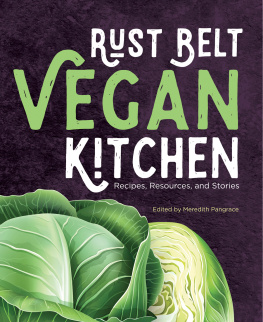
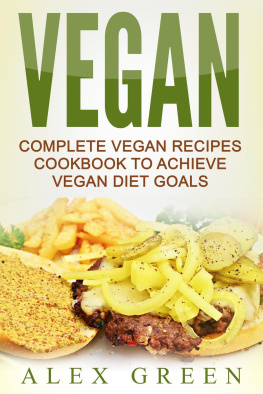
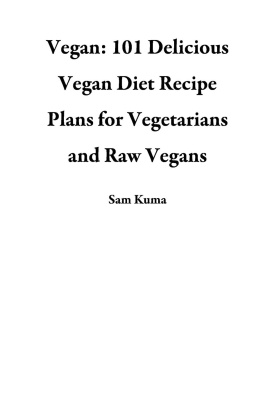
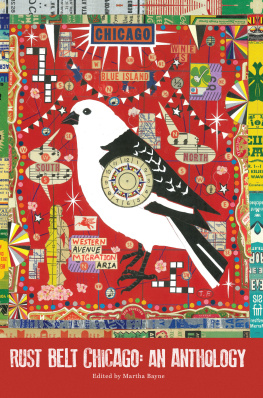
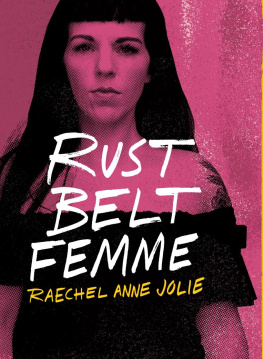
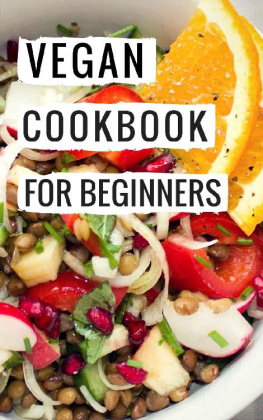

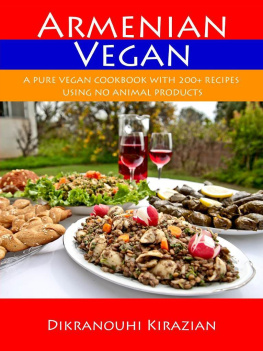
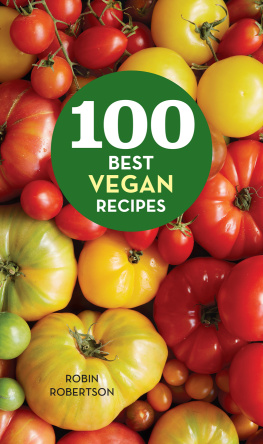
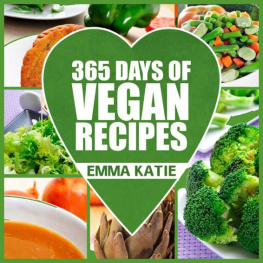
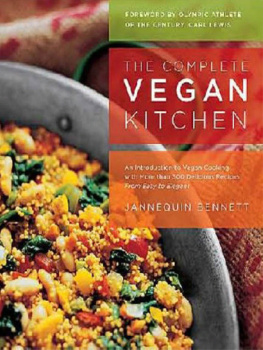



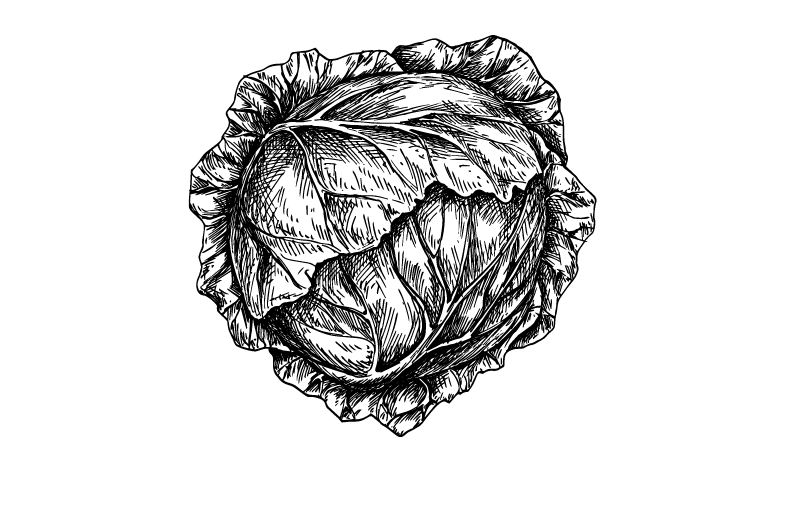
 Pantry Staples
Pantry Staples